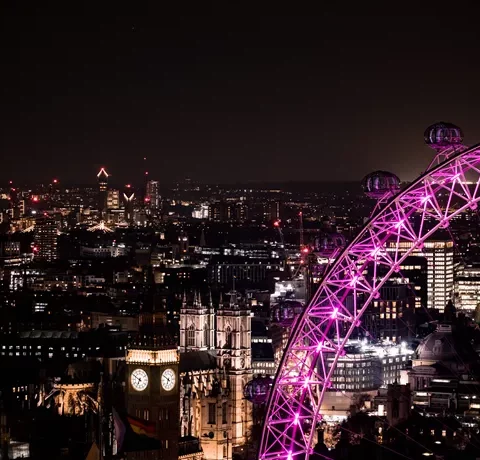More than just entertainment
By Desi K. Robinson
A form of expression, a method of storytelling, a voice for political change: all of this and so much more is categorized through the rhythms and intonations that fill our lives. Just how much influence does music really have over social infrastructure and the political landscape?
Music. There isn’t a culture that hasn’t incorporated it in the fabric of their lives. Music allows us to be whomever we want. The simple acoustics of a shower allow us to be James Brown or a soprano diva at the Met Opera House.
The right tune and the privacy of a bedroom give us the courage to be the featured dancer in the naughtiest burlesque. Studies have shown that music incorporated into school curricula shows students to thrive in other subjects. Music pervades every turn of our lives from infancy to death. It is the glue, the salve and the frosting that placates our solitude and emboldens the intensity of concert halls and protest rallies.
The command of music is so particular that we use it to get married, pray, make love, grieve, sashay down a runway, sell soda pop, strip, exercise, teach nursery rhymes, learn how to count, commemorate a birthday, and to go to war. Music has the power to keep marriages together and give women the courage to leave unfulfilling and dangerous relationships.
Music bridges classes and crosses cultural lines. The newest crop of music boasts a vast fusion of the best elements of hip hop, rock, country, jazz, neo soul, spoken word, Latin, Arab, gospel and folk and has thrust artists like Shania Twain, The Dixie Chicks, Faith Hill, Garth Brooks, Kirk Franklin, Andrea Bocelli and Charlotte Church – – historically bound to their own genre – – into the mainstream.
Because music is with us every step of the way, it begs the age-old question; does art imitate our lives or do our lives dictate art? Clearly every song does not move mountains or make a vast change in the lives of every person on the planet.
Sometimes it’s just background on the lift to get us from the lobby to a 21st floor job interview. Even still, a rousing Ike and Tina Turner version of Rollin’ on the River might give you the pep in your step to win over a potential boss during your meeting.
The evolution of music is exhaustive and permutations of classic genres have had their definitions challenged. Still, in all, this progression of music has shown where our society has come from.
Even during this time when artists knew where their bread and butter were coming from, music expressed dissent. Fela Anikulapo-Kuti used music to fight corrupt Nigerian governments throughout his adult life and he also used the medium to draw international attention to Nigeria. Beethoven removed a dedication to Napoleon from his Third Symphony to protest Napoleon’s crowning of himself as emperor in 1804.
During the 1800s, particularly in the United States, political campaigners composed songs praising their favorite candidate, or criticizing their candidate’s opponent. This practice gradually died out during the twentieth century.
Today, American and British candidates have used popular music with catchy and feel good choruses to connect not only with their constituents’ tastes but also to reach youthful and swing voters. Recently, such artists pumped out of speakers at national campaigns have been Stevie Wonder, Black-Eyed Peas, Melissa Etheridge, Luther Vandross, Mary Chapin Carpenter, and Boyz II Men.
Politicians in Haiti have made music an integral part of their campaigns, using jingles to connect with voters because of a low literacy rate. Information on candidates’ platform and social promises that voters cannot read are incorporated into songs that voters can remember. Music has become the vehicle to not only incite a particular agenda but to jolt a young society into caring about voting at all. Hip-hop mogul Sean “P-Diddy” Combs’ t-shirt campaign, promoting no particular party, simple said “Vote or Die.”
In the United States during the 2000 elections, there were a reported 17 million younger people who could have voted and did not. Music-centered groups like HeadCount, PunkVoter, Music for America and Vote for Change, comprised of musicians including Dave Matthews, Bruce Springsteen, Emily Robison of the Dixie Chicks, Eddie Vedder of Pearl Jam, and Patti Scialfa of the E Street Band campaigned to recruit youth voters with pop music tours.
Before music was so staunchly used to promote the messages of other agendas, it existed to express the condition of its composers and purveyors.
Much of western popular music has its origins in black music. The sonnets of pain, injustice, hope and happiness have infused gospel, soul, blues, jazz, country, reggae, hip-hop, R&B, pop, rock n roll and modern rock music.
Spiritual and political concern is a long-standing tradition in black American music and since the days of slavery, black cultural expressions have incorporated irony, humor, and double meanings not always understood by white society. Black folklore, storytelling, and song offered furtive resistance in the bondage of slavery. Slaves also brought to their spirituals the musical traditions of Africa.
Editor’s Note: Part 2 of this piece will appear on Monday .
Desi K. Robinson is an editorial staff with Ricenpeas, an award-winning independent film-producing company. With thanks to Ricenpeas where this piece was originally published.
Please e-mail comments to comments@thenewblackmagazine.com





viagra priligy Effective for gyno prevention
Muchas gracias. ?Como puedo iniciar sesion?
Awesome blog post.Thanks Again.